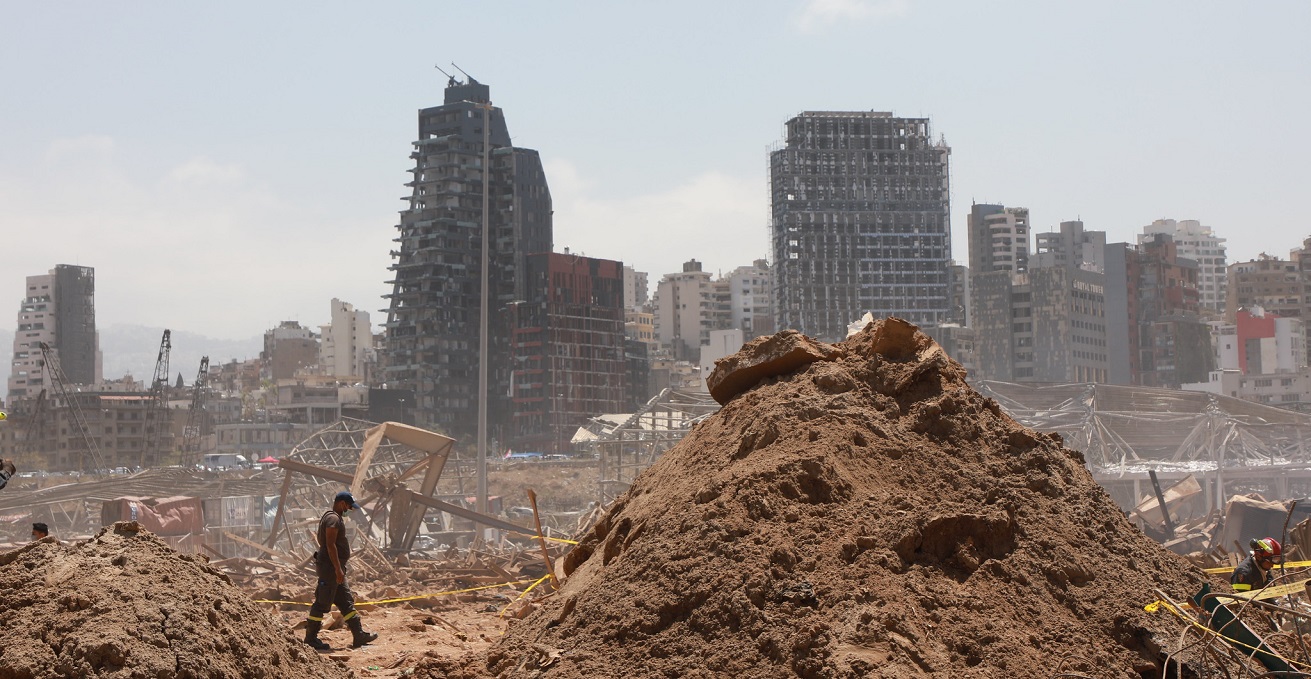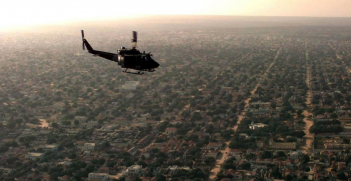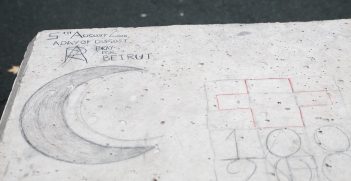Australia in the World: Episode 54

Richard Maude returns (Part 1), and Darren in the Beirut blast.
This week Allan and Darren welcome back Richard Maude to the podcast, who returns after his first appearance back in February in Episode 41. Until shortly before that first recording, Richard was Deputy Secretary, Indo-Pacific Group, in the Department of Foreign Affairs and Trade. Prior to that, he headed the task force responsible for drafting the 2017 Foreign Policy White Paper. From 2013-2016, Richard was Director-General of the Office of National Assessments, and before that he was senior adviser on foreign policy and national security to Prime Minister Julia Gillard. Richard is now at the Asia Society Policy Institute as the inaugural Executive Director, Policy, and Senior Fellow.
Before welcoming Richard however, Darren’s big “secret” is revealed, which is that since late 2018 he has been living in Beirut, accompanying his wife Rebekah Grindlay, who is Australia’s Ambassador to Lebanon, and their children. On Tuesday 4th August, Beirut experienced one of the largest non-nuclear explosions in human history, which utterly devastated the city’s port and downtown area. Darren was at home with his family at the time, and tells the story of what happened next, including the extensive damage to the embassy and injuries to Aussie diplomats. It’s a small insight into what a DFAT crisis response looks like in the immediate aftermath of a terrible tragedy.
Richard is then welcomed, and what follows is a fascinating deep dive into some of the biggest questions of international affairs today, and what they mean for Australian foreign policy. The conversation was too long to fit into a single episode and so, in this first part, the focus is exclusively on the United States, which as the Australian government says in the recent Defence Strategic Update, remains vital for the security of our region. But can Washington continue to play the role Australia hopes, and needs, it to play? Darren asks both Richard and Allan to highlight what evidence from the Trump presidency, and the country’s COVID-19 response, helps shed light on this broader question. Is America experiencing political decay? Are the strengths that enabled it to win the Cold War now hindrances in competition with China? What does the US need to do well to continue to play a significant role in the region, and what can Australia do to help? Can Canberra perhaps mitigate some of Washington’s weaknesses?
Stay tuned for part 2, where the conversation turns to China, new models of international cooperation, and the future of Australian foreign policy.
As always, we invite our listeners to email us at this address: australia.world.pod@gmail.com We welcome feedback, requests and suggestions. You can also contact Darren on twitter @limdarrenj
We thank AIIA intern Mitchell McIntosh for research and audio editing and Rory Stenning for composing our theme music.
Relevant links
Richard Maude’s biography via the Asia Society Policy Institute: https://asiasociety.org/policy-institute/richard-maude
Australian Government, “2020 Defence Strategic Update and 2020 Force Structure Plan,” Department of Defence: https://www.defence.gov.au/strategicupdate-2020/
Ross Douthat, “The revolt of the republican strategists,” New York Times, 11 August 2020: https://www.nytimes.com/2020/08/11/opinion/trump-republicans-lincoln-project.html





